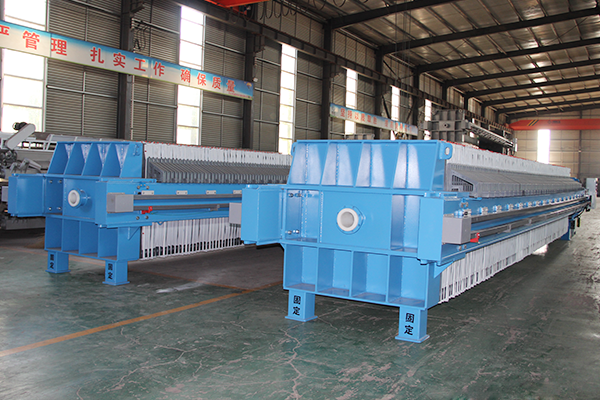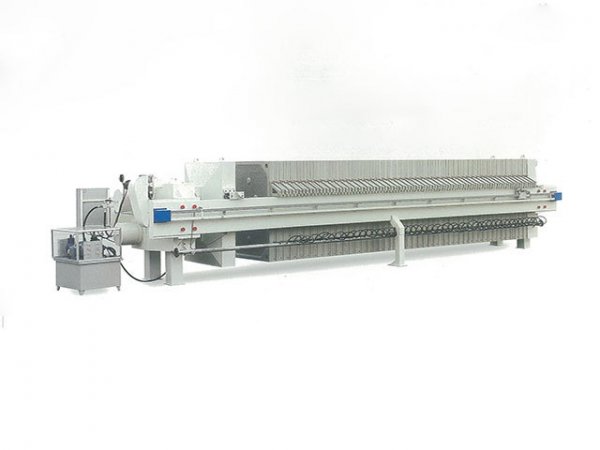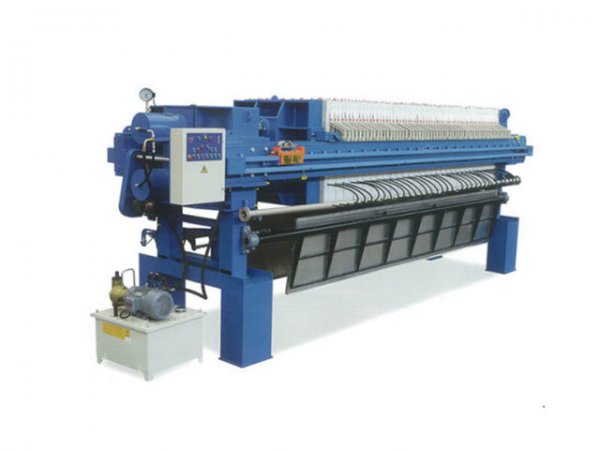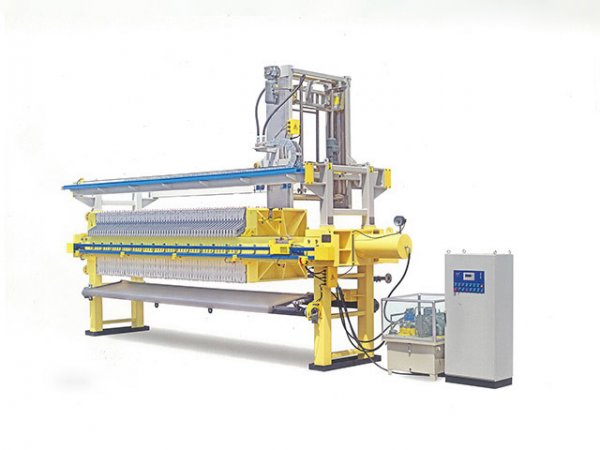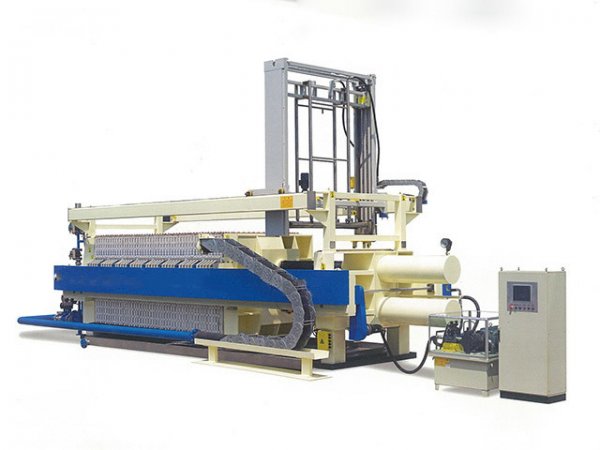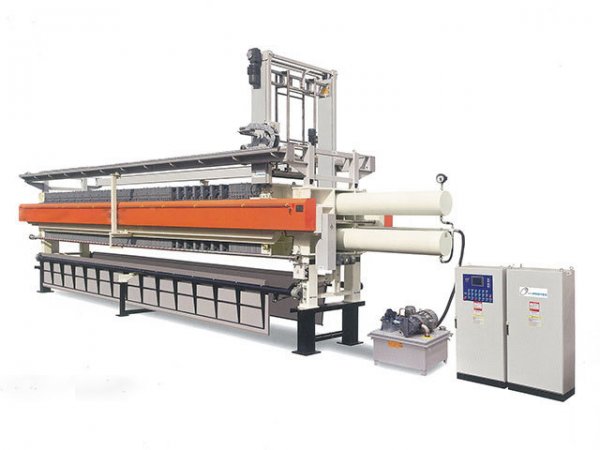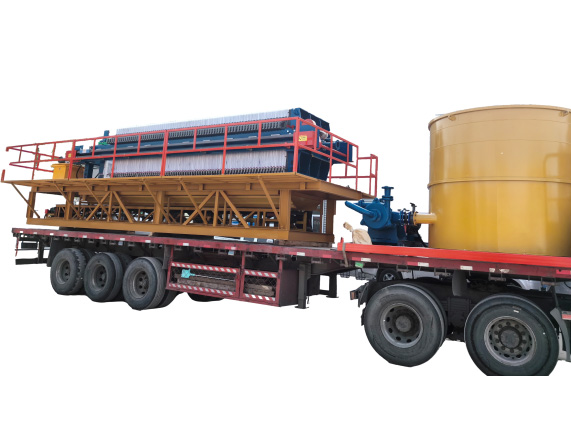NewsDetails
How to Select the Right Automatic Filter Press for Industrial Use: Key Factors Explained
author:Shuangcheng time:2025-07-12 21:39:51 Click:132
In modern industrial production, automatic filter presses play a vital role in solid-liquid separation processes and are widely used across various industries, including chemical manufacturing, pharmaceuticals, food processing, and environmental protection. Choosing a suitable automatic filter press can significantly improve operational efficiency while reducing long-term operating costs. Below, we outline several key factors to help guide your selection.
1. Processing Capacity and Production Requirements
Begin by evaluating the required processing capacity based on your specific production needs. This includes the volume of slurry to be treated per hour and the desired moisture content of the final filter cake. The selected equipment must be capable of handling peak loads without compromising efficiency, while also avoiding excessive overcapacity that could lead to energy waste and unnecessary investment.
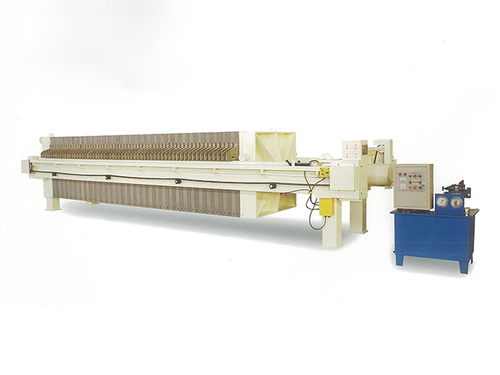
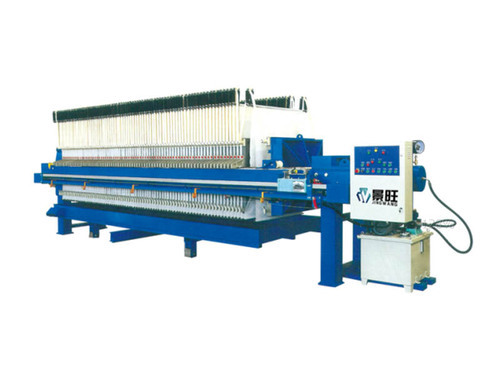
2. Filtration Pressure and Material Compatibility
Filtration pressure is a critical parameter that directly affects separation efficiency. Different materials and slurry compositions require different pressure levels. It’s also essential to select the appropriate construction materials based on the chemical properties and temperature of the slurry. Common materials include stainless steel, carbon steel, and polypropylene. For corrosive or high-temperature environments, durable and chemically resistant materials are recommended.
3. Degree of Automation and Ease of Operation
As industrial automation continues to evolve, modern filter presses are equipped with advanced control systems such as PLCs, HMI interfaces, and remote monitoring. These features enable fully automatic operations, reduce labor requirements, and improve system reliability. A user-friendly interface also minimizes training time and reduces the risk of operational errors.
4. Maintenance and Technical Support
Routine maintenance is vital for ensuring long-term equipment performance. Key components such as filter cloths and hydraulic seals require regular inspection and replacement. When selecting a filter press, consider factors such as ease of maintenance, spare part availability, and the responsiveness of after-sales support. Partnering with a supplier that offers comprehensive technical service can significantly reduce equipment downtime and ensure operational continuity.
5. Cost-Benefit Evaluation
It is essential to assess the overall return on investment by considering not only the initial purchase cost, but also ongoing operational costs, energy consumption, maintenance expenses, and expected payback period. Comparing different configurations and models can help identify the most cost-effective solution that aligns with both budget and performance expectations.
Conclusion
Selecting the right automatic filter press for industrial applications requires a comprehensive evaluation of multiple aspects, including processing capacity, filtration pressure, construction materials, automation level, maintenance needs, and cost-effectiveness. A well-informed decision will ensure optimal performance, lower operating costs, and long-term reliability. If you need personalized recommendations or technical assistance, please don’t hesitate to contact us — we are committed to providing you with high-quality products and professional support.
Technical References (International Research Highlights)
To support informed decision-making, here are selected insights based on publicly available international research and engineering literature:
·Solid-Liquid Separation and Filtration Technologies – Global Perspective
International studies highlight the importance of matching filtration area and pressure to the specific properties of the slurry for optimal dewatering efficiency. Filter cloth selection based on pore size also plays a decisive role in separation performance.
·Automated Control Systems in Industrial Filtration Equipment
Engineering reports emphasize that incorporating PLCs and remote monitoring in filtration systems enhances operational stability, allows adaptive control, and supports predictive maintenance.
·Material Selection in Corrosive Filtration Environments
Research on material science confirms that choosing chemically resistant materials like polypropylene and 316L stainless steel is crucial when dealing with corrosive or abrasive process fluids.
Cost-Benefit Analysis of Filter Presses in Wastewater Treatment
·Economic evaluations suggest that well-optimized filter presses can significantly reduce operating costs and improve return on investment, particularly in wastewater and sludge treatment applications.
 Recommended Products
Recommended Products
 Contact us
Contact us
—— Contact:Manager
—— Tel:+86 16632826789
—— Email:sales@hbscfilterpress.com
—— Url:https://www.hbscfilterpress.com
—— Address:West Zone of Economic Development Zone, Fucheng County, Hengshui City, Hebei Province

